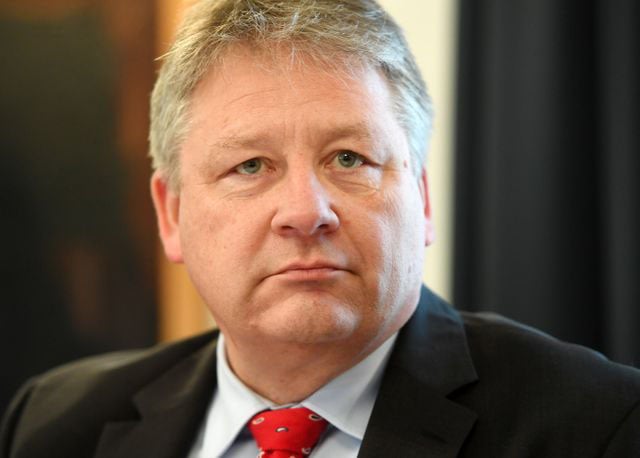BERLIN, (Reuters) – Russia’s acts of sabotage against Western targets may eventually prompt NATO to consider invoking the alliance’s Article 5 mutual defence clause, the head of Germany’s foreign intelligence service said on Wednesday.
Speaking at an event of the DGAP think tank in Berlin on Wednesday, Bundesnachrichtendienst chief Bruno Kahl said he expected Moscow to further step up its hybrid warfare.
“The extensive use of hybrid measures by Russia increases the risk that NATO will eventually consider invoking its Article 5 mutual defence clause,” he noted.
“At the same time, the increasing ramp up of the Russian military potential means a direct military confrontation with NATO becomes one possible option for the Kremlin.”
Under Article 5, if a NATO member comes under attack, the other members of the alliance are obliged to help it respond.
NATO and Western intelligence services have warned that Russia is behind a growing number of hostile activities across the Euro-Atlantic area, ranging from repeated cyber attacks to Moscow-linked arson – all of which Russia denies.
Kahl said Russia’s military would likely be capable of attacking NATO by the end of the decade, adding that Moscow’s war on Ukraine meant that it had battle-proven troops under its command which raised the threat emanating from its conventional forces, while it also mastered modern drone warfare.
According to the assessment of his experts, high-ranking officials in the Russian defence ministry doubt whether NATO’s Article 5 including U.S. protective measures for Europe would actually be invoked in case of an emergency, the intel chief said.
“We don’t have any indication yet that Russia intends to go to war, but if such sentiments gain the upper hand in the government in Moscow, then the risk for a military confrontation will grow over the coming years.”
Should Russia attack one or several NATO allies, it would not do so to grab massive swathes of land, Kahl said, but rather to test red lines set by the West with the aim of defeating Western unity and NATO as a defensive alliance.
“In Russia’s view, this goal would be reached if Article 5 were to remain without effect in case of a Russian attack,” he said.
“To meet this target, you don’t need to send tank armies westwards, it is enough to dispatch little green men to the Baltics to protect allegedly threatened Russian minorities or adjust borders on Svalbard”.









